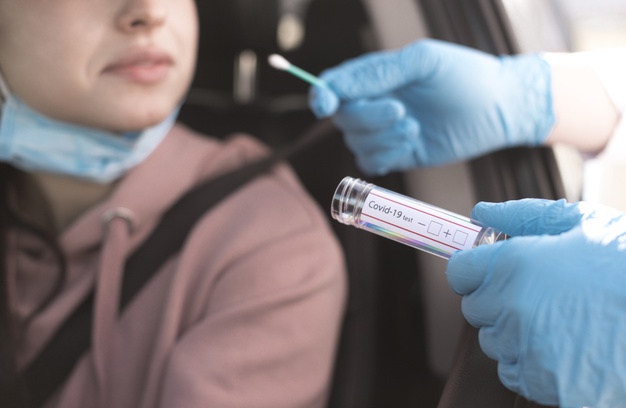
“The most common way that testing is done is with a swab into the nose or into the nasal pharyngeal area,” says Dr. Stacey Rizza, a Mayo Clinic infectious diseases expert. “This polymerase chain reaction (PCR) test is essentially a test looking for the genetic material of the virus.” If it’s positive, it means that person is infected with SARS-CoV-2, the coronavirus that causes COVID-19.
Dr. Rizza says, “There are other ways to determine if somebody has been previously exposed to COVID-19, which is through a serology blood test.” She adds that, “current infection can also be diagnosed by using a blood test which looks for certain proteins or antigens. But the most sensitive test for active infection right now, is looking for that genetic material.”
And Dr. Rizza explains there are several approaches to treating COVID-19.
“The standard of care, as it is now, is an antiviral medicine called Remdesivir,” says Dr. Rizza. “People also use other supportive care like oxygen if somebody’s having difficulty breathing or blood pressure support, or increasing fluids to help maintain people feeling healthy.”
Dr. Rizza says there are a number of clinical trials that are looking at other antiviral medicines, as well as modulators of the immune system that could prevent people from getting very sick in the later phases of the disease.
“Also, steroids has been shown to be helpful for people who are extremely sick, or are on ventilators, or are requiring significant amounts of oxygen support,” adds Dr. Rizza.
Emergency warning signs to watch for
If a person with COVID-19 experiences emergency warning signs, medical attention is needed immediately. Call 911 or your local emergency number if the sick person can’t be woken up or you notice any emergency signs, including:
- Trouble breathing
- Persistent chest pain or pressure
- New confusion
- Bluish lips or face
- Inability to stay awake
Related information:
‘Courtesy: Stacey Rizza M.D. / Infectious Diseases / Mayo Clinic.’[/vc_message]
Disclaimer
The information contained in South Florida Reporter is for general information purposes only.
The South Florida Reporter assumes no responsibility for errors or omissions in the contents of the Service.
In no event shall the South Florida Reporter be liable for any special, direct, indirect, consequential, or incidental damages or any damages whatsoever, whether in an action of contract, negligence or other tort, arising out of or in connection with the use of the Service or the contents of the Service.
The Company reserves the right to make additions, deletions, or modifications to the contents of the Service at any time without prior notice.
The Company does not warrant that the Service is free of viruses or other harmful components












